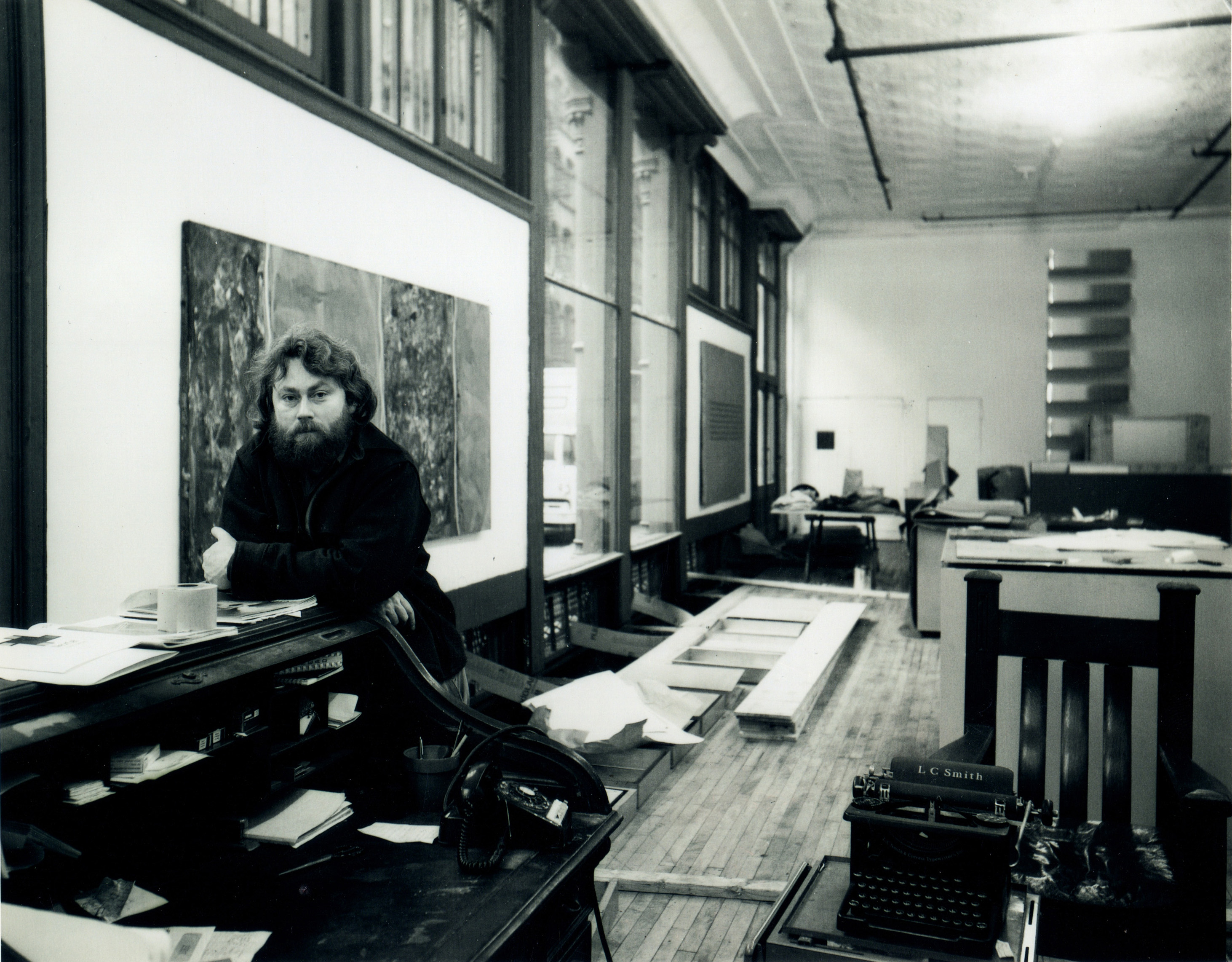The Box Set
by Travis Diehl

Donald Judd in his studio at 101 Spring Street, New York. Photo: Paul Katz. © Judd Foundation. Courtesy Judd Foundation Archives
For an artist who lived much as he worked, it’s tempting to square the “formal” caricature of Donald Judd’s sculpture — shiny, austere, unequivocal, seemingly stamped out by machine — with that of his writing. The minimalist was perhaps the last century’s most forceful artist-critic, delivering even his most stubborn barbs and medals with the exactitude, rigor, and commitment of a hydraulic press. But turn to his “Complaints,” a two-part essay published in 1969 and 1973, and criticism gets personal. “Only those who produce have the right to complain,” Judd wrote, and when he complained about his own production, he did so with righteous passion.
The “Complaints” includes no fewer than four paragraphs recounting damage to his artworks abetted or committed by careless shippers, museums, and guards. There are lacquered pieces that “have come back with Santini Shipping Service stickers stuck on the lacquer.” There’s the botched restoration of a box piece meant for Documenta 4, smashed in transit, then “loosely and crookedly welded” and “sprayed with aluminum paint.” He had that one destroyed. Meanwhile, at the Met, he noted “someone was putting more fingerprints on one end of a piece of mine … while the other end was being cleaned. The guard said nothing.” All this by way of saying, as he tells the Guggenheim Museum in a letter, that museums and collectors don’t understand what they’re buying. From the “truckmen” on up to the tastemakers that hire them, averred Judd, “my work is just metal; Flavin’s is just fixtures; Chamberlain’s just junk…”
Where Judd’s writing is strict and declarative, it is likewise iterative and endless. Donald Judd Writings, a new collection arriving later this year, is a 900-page doorstop. (One still needs the Complete Writings: 1959-75 — incidentally, back in print — for his hundreds of early reviews.) The two “Complaints,” the first on art criticism and the second on the conditions of art display, contain parameters for dozens of dented but unswerving “notes,” appearing here for the first time among a near-total selection of unpublished fragments, college papers, and essays never before printed in English. Shouted from the arena, his writing assumed a bruised and principled belligerence. “I complained about the incompetence of art criticism,” he regretted in ’73, “and the attempts of various persons to stop thinking. That situation hasn’t changed.” Back in ’69 he had dismissed the Greenbergian ideologies of “universal style” as “little league fascism.” “Fried’s article ‘Art and Objecthood’ was stupid,” he wrote, wasting few words on that most theatrical denunciation of minimalism. “He cross-referenced Bob Morris, Tony Smith, and myself and argued against the mess.” (An unpublished note, of 1991, is less controlled, but funnier: “Rosalind Krauss, etc., etc., are just intellectual rice krispies.”) He quotes some hapless writer in Science magazine, beaming that “Ten outstanding sculptors were invited [by the NEH] to spend the summer chipping away at blocks of marble, and the results were left to start a sculpture park. For a modest outlay of $10,000….” Judd had no mercy. “What outstanding artists? Who works three months for $1,000?”
Judd complained; but who listened? In the 70s, Judd railed against nationalism in art and the war in Vietnam. In the 90s he aimed precision blows at the Gulf War. He was pragmatically wary of -isms (not least minimalism), weary of being misunderstood, and ready to bail from what he called this “burnt ball.” Down in Marfa, Judd had his Land Rover custom-fitted with steel boxes, like an anarcho-libertarian bugout vehicle. And yet here is a note of 1986: “Any argument for isolation or ignorance is wrong.” If such right-angled, self-convinced, independent, and contradictory polemics seem best left in the 80s, a serious look at Donald Judd Writings turns up public judgments of the absurd inequities of museum shows or the predominant banality of art writing that cut just as true today. “I haven’t written anything in quite a while,” begins “Complaints I.” “I have lots of complaints.” For Judd, writing was complaining, and anyway, in a world summarily dragged from one injustice to the next, there can be no clean conclusion; one just keeps going.